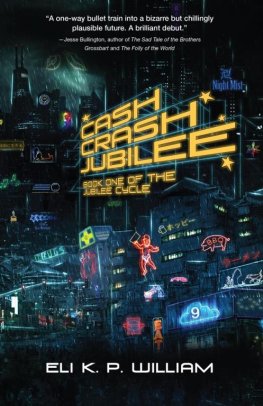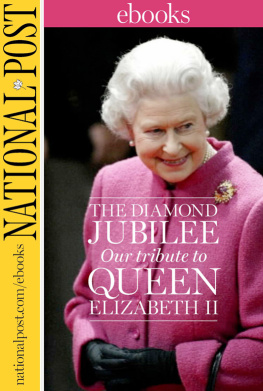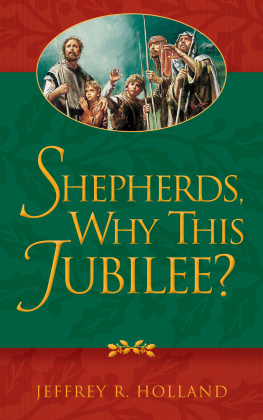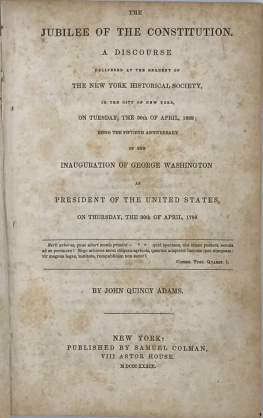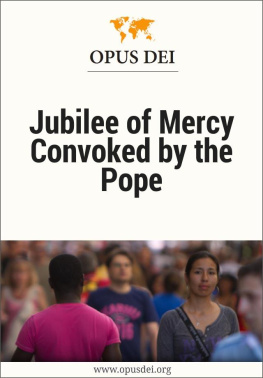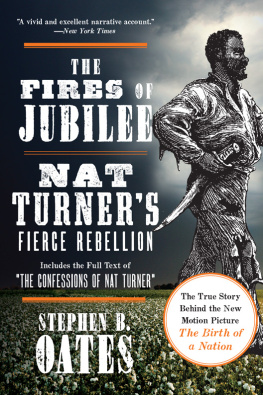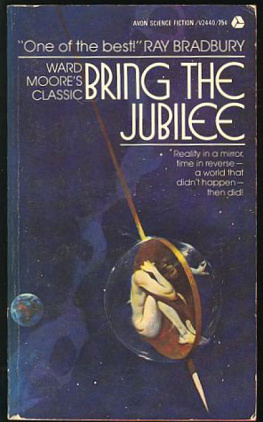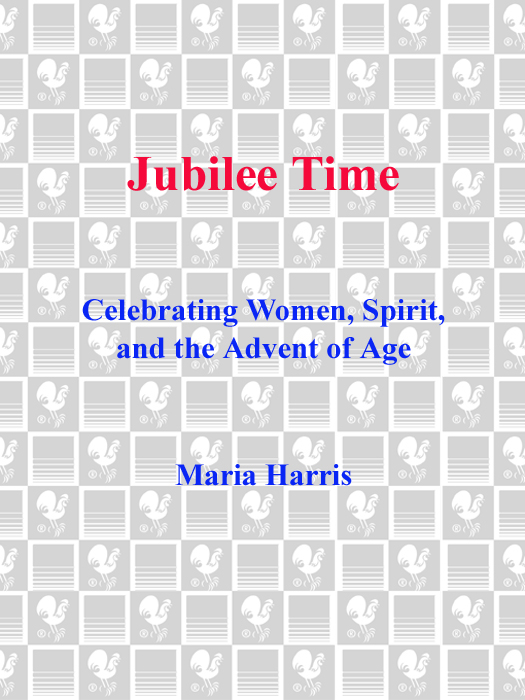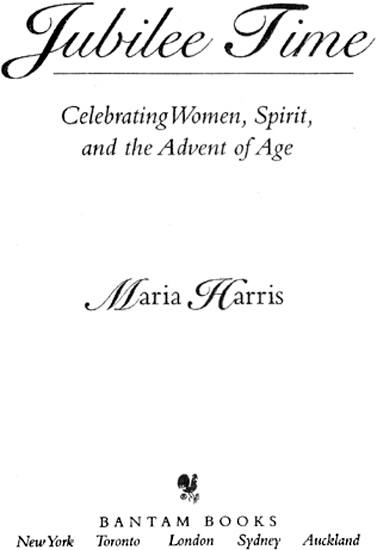CONTENTS
One:
C ROSSING THE T HRESHOLD
Two:
T HE H ALLOWING OF S ABBATH
Three:
P ROCLAIMING FREEDOM
Four:
T HE J UBILEE J OURNEYS
Five:
T AKING I NVENTORY
Six:
T ELLING O UR S TORY
Seven:
T HE S ONG OF G RATITUDE
A CKNOWLEDGMENTS
No one writes a book alone; I am no exception. But Jubilee Time is coauthored in a special way. Not only does it draw on the ideas and thoughts of those who work with or have written on women, aging, spirituality, and their interconnections, it includes the reflections of over 135 women who graciously responded to a questionnaire I sent out on these issues, and the shared ideas of many others willing to have conversations with me on the topic. Almost all, when asked, said, Of course, use my name, and use my responses, and the reader will find this a richer book because of that. I have tried to express my gratitude personally to each of these women; here I do it publicly, with deep appreciation. In addition, I offer special thanks to those women who not only responded themselves, but sent the questionnaire along to friends and acquaintancesI will say more about them in the Introduction.
I also wish to acknowledge the wisdom of the Jewish thinkers who have shaped my understandings of several of the themes in this book, especially Sabbath and Gratitude. As one raised outside of Judaism, I have nonetheless found the work of Sherry Blumberg, Abraham Joshua Heschel, Sara Lee, Jo Milgrom, Judith Plaskow, Letty Cottin Pogrebin and Lilly Rivlin, among others, invaluable. But in a special way, as a Christian, I am also indebted to the rich, poetic, ever-fruitful Jewish tradition itself, not only past but present. I am nourished continually by its insights, and as a stranger in its land, to use a Jubilee phrase, I acknowledge my indebtedness to the people of that land.
Im also grateful to those whove invited me to spend several days or a week with groups of womenand at times men toowho wanted to pursue the themes of Jubilee, and to those who took part in those groups, sharing their lives with me as they did. These include Lyn Yeo, Lowell Moyse, Marion Moyse, and close to one hundred participants in Kingston, Ontario; retreatants and regulars at Cor Maria, a Sag Harbor, New York, retreat house; the Jubilee women convened by Rita Clare Dorner at Santa Clara University; an articulate and reflective group gathered in Holland, Michigan, by George Brown, especially Linda Lee Albert, Sheila Frank, and Noel Horn; the wise and witty women of Bethsaida, led by Jeanne McGorry; Barb Nardi and the women I met at Cathedral House in Corpus Christi; Pat Duffy and the sabbatical groups in Water Mill, Long Island; the religious educators of Phoenix, Arizona, especially John and Mary Ann Meyer; Judi Geake and the Womens Exchange members in Winnetka, Illinois; seminar attendees in Princeton, New Jersey, who alerted me to the power of every seventh year so crucial to Jubilee; Pat Luparello and Grace Harding of Pittsburgh; Rita Brill and Jackie Foster of Boise, Idaho; Maria Kleinschmidt of Little Rock; Sue Bertoletti of Lansdale, Pennsylvania; Kathy Gadjos and the women at Temenos Spiritual Center in Broad Run, Pennsylvania; and not least, Sheila Carney, RSM, president of the Pittsburgh Sisters of Mercy, who has continually affirmed and supported the power of Jubilee in the spirituality of women as we age. I must also thank Joyce Cupps, editor and founder of Encore: The Return of the Crone, who initiated my regular Jubilee column in that fine magazine for older women, and Michelle Rapkin and Maria Mack, who shepherded my original proposal for Jubilee Time to acceptance by Bantam.
Several other institutional opportunities enabled me to develop the material in the book: invitations to teach at Auburn Theological Seminary in New York and to deliver several lectures, including the Education Lectures at Candler School of Theology in Atlanta; the Alumnae/Alumni Lectures at Columbia Seminary in Decatur, Georgia; the Schaff Lectures at Pittsburgh Theological Seminary; the McFadin Lectures at Brite Divinity School in Fort Worth; and the Bradner Lectures at Virginia Theological Seminary in Arlington. The feedback and the conversations and contact with those who came to listen and to speak with me in those settings taught me a great deal.
Finally, coming closer to the center of my personal Jubilee Time, I must attempt to express my gratitude to five other people. To my extraordinarily gifted editor at Bantam, Linda Gross, I offer what can be only a feeble thank-you, in the light of your thoughtful counsel and artistic sensitivity in pushing me toward excellence with each succeeding draft of Jubilee Time.
To Kathy Sperduto and Joanmarie Smith I offer this simple acknowledgment: without you, I couldnt have done ityour careful criticism, love, and listening mean the world to me.
To Gabriel Moran, the partner with whom I am blessed to be growing old, my daily prayer of wonder for the gift of your presence.
And to Joan Grace, one of the coauthors to whom I dedicate this book, I express the honor it is to be your friend. Stranger to neither laughter nor loss, you are a Jubilee woman par excellence and a grace to everyone you touch.
Maria Harris
Montauk, New York
August 1994
I NTRODUCTION
You shall count off seven weeks of years, seven times seven years, so that the time of the seven weeks of years shall be to you forty-nine years. Then you shall hallow the fiftieth year. It shall be a jubilee for you.
Lev. 25:8, 10
With these words as summons, I invite you to enter Jubilee Time. I ask you to join me in exploring the biblical Jubilee, a feast celebrating the fiftieth year and providing the basis of a spirituality for women in the second half of life. Too little known, the many facets of Jubilee are gifts to every woman facing who she is now and what she might become in the years and decades following her fiftieth birthday.
The first mention of Jubilee occurs in the Hebrew Bible, in the twenty-fifth chapter of the Book of Leviticus. There, a caring, attentive God speaks to a weary, exhausted people who are entering a new chapter in their lives. When you enter the land I am giving you, says this God, the land shall observe a Sabbath. Six years you shall sow your field, and six years you shall prune your vineyards and gather in their yield; but in the seventh year there shall be a Sabbath of complete rest for the land, a Sabbath for the Lord.
This peoples God begins by establishing a foundation of rest and re-creationa spiritualityfor them. From the beginning of their sojourn in the new land, they are to alternate work and withdrawal from work. This creates a rhythmic pattern that increases in momentum with every seven-year cycle. During those sabbatical years, they are to step back from their ordinary routines and practice a reverent attitude toward one another, the land, and themselves. They are to forgive debts and return property. They are to honor the Divine Mystery Who is their origin. As they do they become readied for the great ritual of Jubilee.


